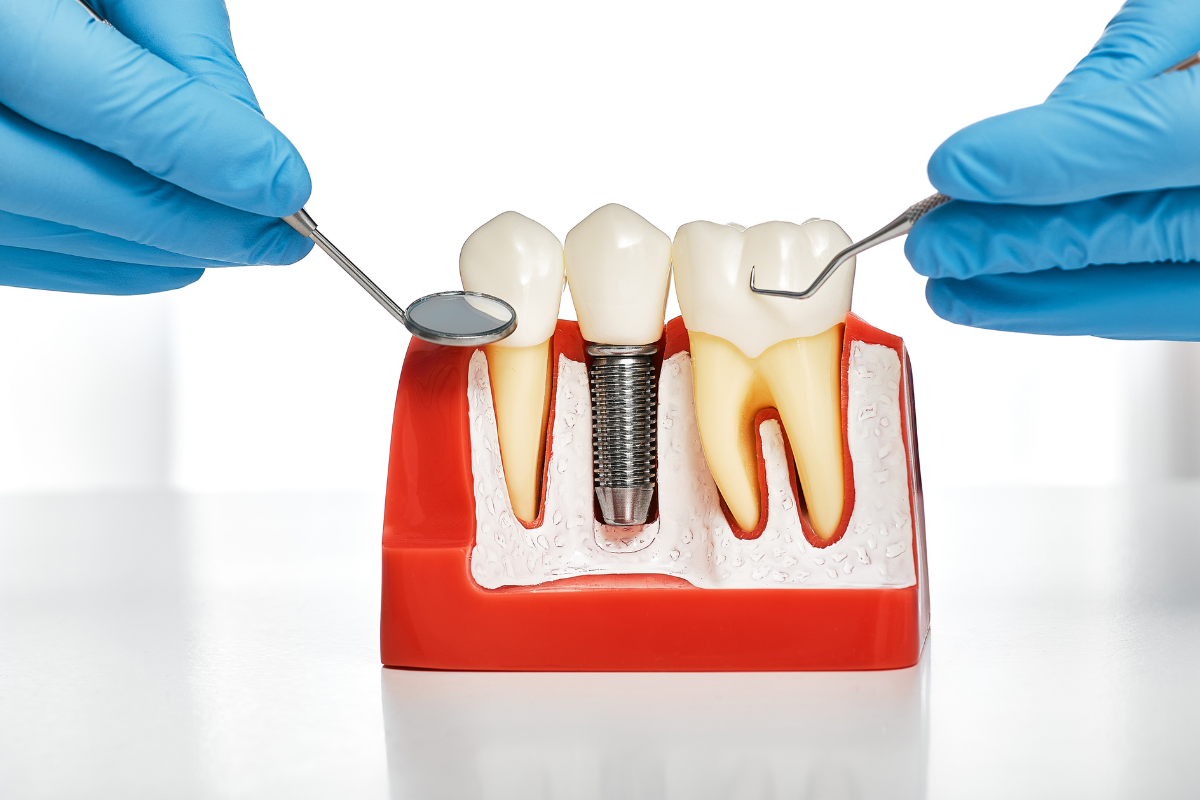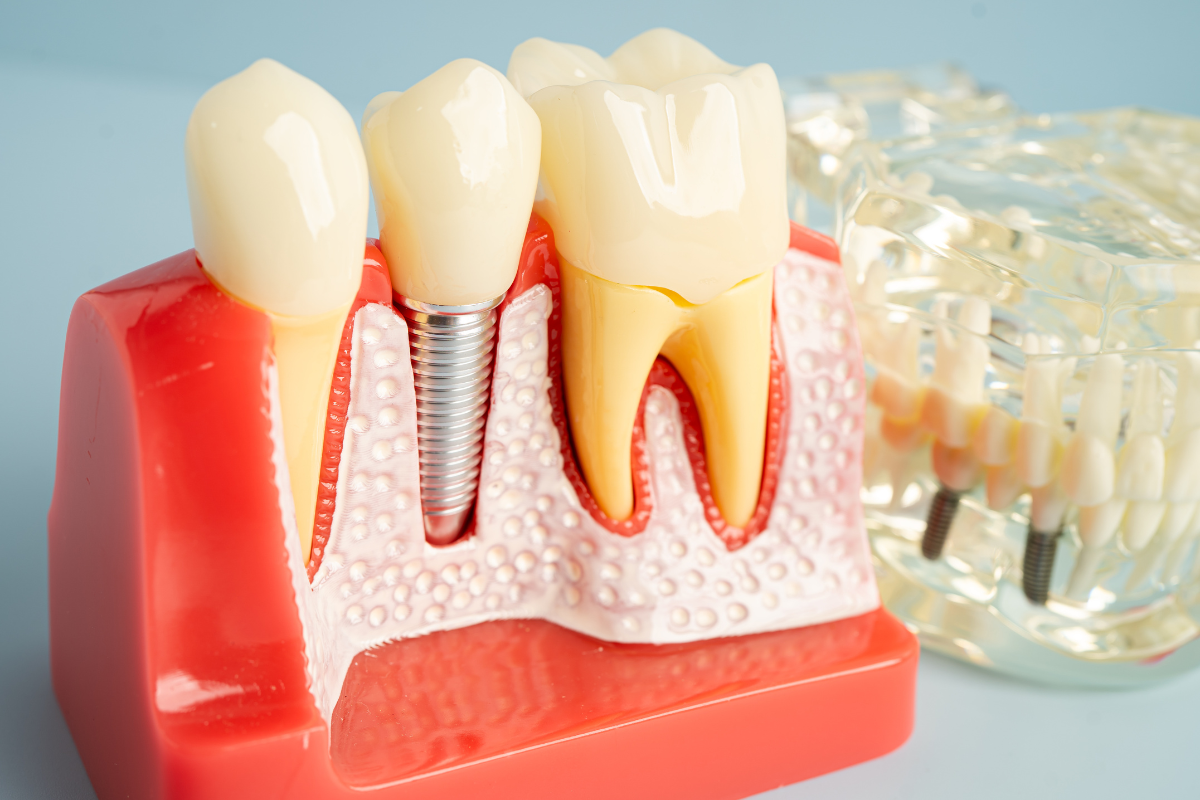
Growing interest surrounds dental implants among diabetic patients seeking lasting solutions. The concern remains: does diabetes block the path to implants?
Diabetes complicates healing and makes many patients question implant success. Medical research shows success depends on several controllable factors. With the right guidance, diabetic patients often achieve excellent implant outcomes.
This blog explains the risks, success factors, and trusted professional recommendations. Every diabetic patient deserves clear insight before considering implants for lasting oral health.
What Are Dental Implants and Why Do So Many People Love Them?
Dental implants replace lost teeth with titanium posts anchored into the jawbone. They regain chewing ability, improve speech clarity, and provide a natural appearance. Implants do not move, unlike dentures, and eliminate pain and sliding while in use.
Long-term reliability makes implants more reliable than bridges or partial alternatives. The majority of patients prefer dental implants in Erdenheim because they preserve bone structure and jawline. Implants also increase self-confidence and help regain full oral function.
For diabetics, implants are a liberty compared to removable dentures. Dental implants continue to be dentistry’s most dependable substitute treatment.
Diabetes and Oral Health: The Connection
Diabetes affects gum health by damaging the healing of tissue and increasing the risk of infections. High blood sugar allows for a fertile soil for the growth of threatening bacteria. Weakening of gums and destabilization of bone support around teeth can result from chronic inflammation.
Controlled blood glucose levels reduce complications and improve healing response. Uncontrolled diabetes most likely leads to gum disease, tooth loss, and delayed healing. Hence, diabetic patients require oral health care.
Oral hygiene improves the success of these artificial tooth roots. Sound gums and bone allow successful implantation of implants in diabetic patients.
Can Diabetic Patients Undergo Dental Implants Without Danger?
No, diabetes does not automatically rule out patients for dental implants. The outcome is highly dependent on diabetes control. Successful implant outcome in well-controlled blood sugar patients is virtually identical to that of non-diabetic patients. Uncontrolled diabetes increases the likelihood of implant failure and infection.
Literature shows there are high success rates if stable glucose levels are maintained in patients. Individual evaluation should be done for every patient before surgery can be started. Diabetic patients need cooperation between the dentist and the physician. Careful attention to diabetic patients will provide successful long-term implant outcomes.
Major Determiners of Implant Success in Diabetics
Control of Blood Sugar- Healthy blood sugar levels reduce risks of infection and ensure healthy healing.
Bone Density and Gum Health- Adequate bone and strong gums ensure implant stability.
General Medical Condition- Ongoing medical conditions or medications may influence healing capacity.
Lifestyle Habits- Smoking and malnutrition significantly lower the success rate of implants. Regular exercise, proper diet, and compliance with medications all add to outcomes.
Dental implantation requires a lot of preparation after the surgery itself. Diabetic patients require long-term dedication for successful implants. Using both medical and dental strategies guarantees higher success.
Steps Diabetic Patients Can Take Before Implant Surgery
Regular visits to the doctor offer stable blood glucose for surgery. Gum and bone examination by a dentist ensures the health of the area for implants. More interaction between the dentist and the physician improves surgical planning.
X-rays and scans check the bone density and the condition of the implant area. Lifestyle adjustments, including quitting smoking and improving circulation. Dietary adjustments provide antioxidant vitamins for healthier gums. Sufficient hydration also helps recovery and reduces complications.
Dental implants in Erdenheim are more effective with careful preparation procedures.
Tips for Long-Term Dental Implant Success in Diabetics
Brush gently twice daily to protect implants and gums. Floss or use interdental cleaners once a day to remove plaque. Antimicrobial mouthwashes further reduce damaging bacteria near dental implants.
Monthly blood sugar control increases immune protection and healing. A low-sugar diet preserves bone and gum health. Regular cleanings and consultations every six months. Abstain from alcohol and smoking to preserve implant stability. Daily dedication ensures that diabetic patients can enjoy long-term implants and confidence.
Diabetic patients can safely receive implants with caution. Close interaction with medical and dental teams guarantees safety. Balanced blood glucose and routine oral hygiene increase implant success. Chewing function is restored, confidence is built, and long-term oral health is achieved with dental implants.
All people with diabetes should have the ability to smile with confidence and comfort. Dental implants continue to offer hope, independence, and long-term results for patients with diabetes.




